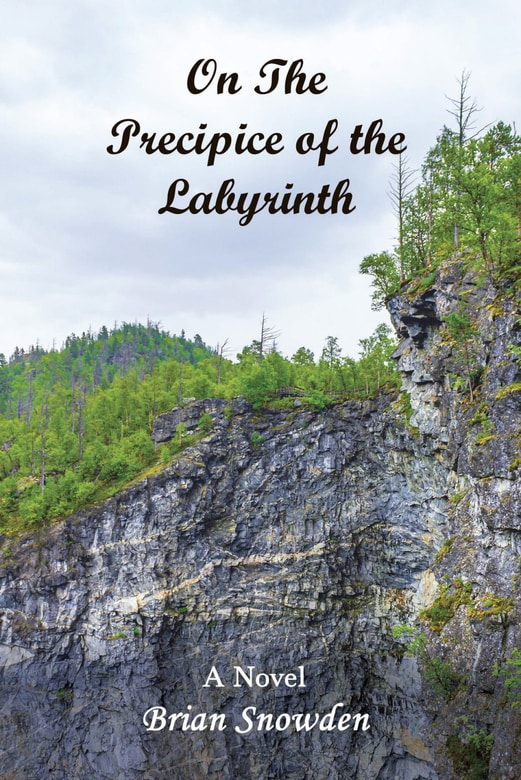
1930s Charlottesville graduate William Benning embarks on an inspired mission to reach Spain in On the Precipice of the Labyrinth by Brian Snowden, an ambitious road story exploring romanticism versus reality.
Like many Americans, Benning is connected to Spain by ancestry, and is taken with the language. He secures passage to Spain by taking menial work on the ship across the Atlantic. A series of fortuitous encounters with friendly locals sees him landed in various lodgings and gigs, leading Benning to find himself in Civil War-era Spain, across the Pyrenees into beleaguered Basque country, hitching rides and trying out various local delicacies and customs while making acquaintances along the way.
While the book is charming for all its detail on Spain, it’s also somewhat quixotic in its depiction, much in the same way that Bruce Chatwin or Hemingway’s writing of various cultures can never be truly native – always through the lens of the traveling foreigner enjoying the best of a country’s hospitality rather than dealing with any of the difficulties experienced by those living in these places through war and poverty. However, it must be remembered this book is touted as a novel, and as such, events do take place through the eyes of Benning, a young American with no experience of politics or war in Spain.
For instance, a scene where Benning witnesses the brutality of the military on the local population concentrates on his discomfort at seeing it, rather than any true political understanding of why it is happening. Any talk of politics becomes interrupted with his own chatter about Roosevelt, missing the urgency of the Spanish situation. Doors open rather easily for Benning throughout the book, and he doesn’t seem to understand that to most of the people he meets in Spain, he must seem like a rich and exotic American with a shimmer of money about him, and he never questions that they seem to have dropped everything in their normal lives to tour him around on a whim.
When Benning finally does find himself in a violent situation, he rather ungenerously tells his host that he’s not interested in getting involved with his country’s issues. However, this makes a much more rounded protagonist than expected – is it not more of an American abroad story for the naive young American to keep himself afloat with the security of his homeland when the romance starts to fade, in the way of other fictional travel dilettantes such as Dickie Greenleaf or Port Moresby? When read with this in mind, Snowden has written something of a masterful portrait of 1930s American youth, although it’s not entirely clear whether this is a happy accident or intentional characterization.
Expecting a life-changing adventure as the synopsis and prologue suggests, the book is, for the most part, a gentle trip through the scenery, language, and food of Spain. At times, Benning’s story labors the logistics at every turn without much reward; he repeatedly explains to everyone he meets where he’s from, rather than letting his reader assume this happened. Additionally, the Spanish doesn’t always seem authentic in dialect or usage – it’s doubtful a nun in 1930s Spain would use anything but the ‘usted’ form with a foreign man; nor do they speak Euskara, the Basque language prevalent in the 30s before Franco attempted to wipe it out. In such a tight tapestry of everything Spanish, a smattering of interesting words may have better enhanced the story.
Overall, On the Precipice of the Labyrinth is well worth the rather detailed read it proves to be, providing a flavorful and compelling portrait of life abroad in historic Spain with the backdrop of brewing Civil War.
Book Links
STAR RATING
Design
Content
Editing
Get an Editorial Review | Get Amazon Sales & Reviews | Get Edited | Publish Your Book | Enter the SPR Book Awards | Other Marketing Services























Leave A Comment